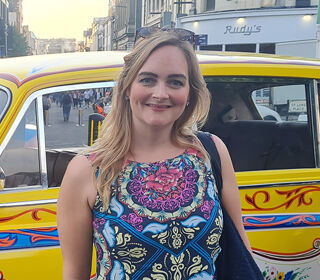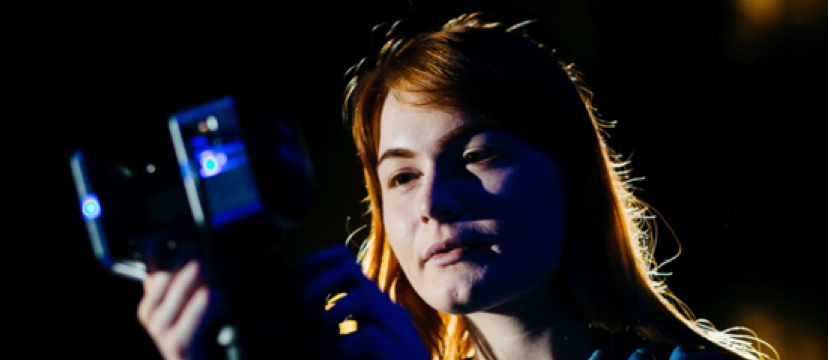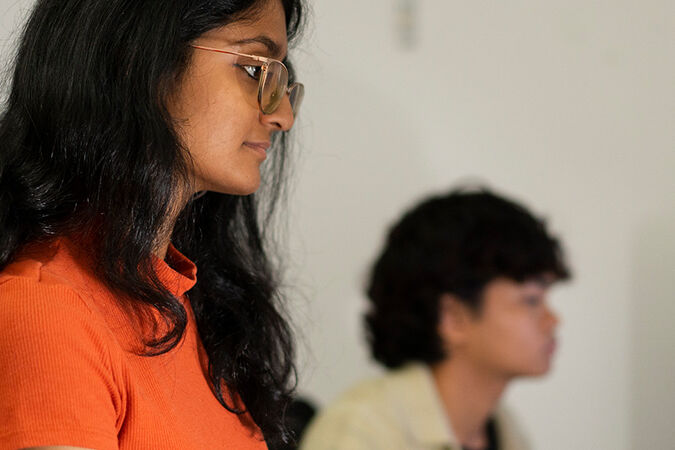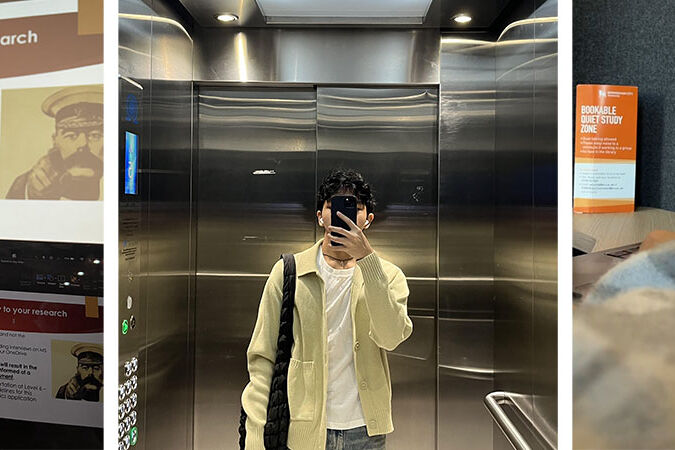
Blog

Dr Rebecca Semmens-Wheeler joined BCU’s psychology department in 2016 and is joint course director for the BPS accredited MSc in Psychology. She chose to be an academic in order to pursue and share her passion for psychology; in particular, how psychology can improve people’s lives on an individual and societal level.
We spoke with Rebecca about her career so far, what studying a psychology degree is like and any advice she has for upcoming psychologists.
What do you do at BCU and how long have you been part of the University?
I am a senior lecturer in Psychology, where I am also the mental health and wellbeing lead. I also teach yoga and mindfulness to staff and students.
Could you tell us about your experience and how this feeds into your teaching?
Prior to getting involved in psychology, I worked in the music industry as a DJ, junior sound engineer, and doing audio quality control at a vinyl pressing plant. After a few years, I realised the industry wasn’t for me and decided to pursue a degree at what was then called the University of Luton, starting with a Certificate in HE, as I only had one A-Level. It was wonderful to have the opportunity to study abroad in Florida for a year, and then do a funded research internship in cognitive neuroscience at Rice University in Texas.
After completing my degree in 2006, I started my psychology teaching career at a school sixth form and the following year I began teaching as a visiting lecturer at the University of Bedfordshire and starting an MSc in Cognitive Neuropsychology at Herts. Following that, I did a PhD at Sussex on ‘The Contrasting Role of Higher Order Awareness in Hypnosis in Meditation’. I started out very much in cognitive and biological psychology, and this was reflected in my teaching. However, my focus has shifted to mental health and wellbeing more in recent years, and this is where I am focusing my energy on teaching and active participation.
What are some of the greatest achievements you have accomplished at BCU?
Qualifying as a mindfulness teacher, fitness instructor, and yoga teacher alongside my academic role have been big achievements, especially having a chronic illness that can be disabling at times. Supervising colleagues to their gaining of a PhD has also been wonderful.
Psychology Courses
Find out more about our courses
What makes the courses you teach on distinct and what is the learning environment like?
Our online MSc Psychology conversion course, is distinct in terms of its modality. Being online means that it attracts more international students, and many of our learners already have careers, children, and lots of life experience! It can be a rich and stimulating environment with lots of interesting questions and discussion.
I also teach on the BSc/MSCi Psychology and Counselling course. Most of the team on the counselling side are trained and accredited counsellors or psychotherapists and bring a wealth of practical experience. This is a face-to-face course, and the nature of the modules means that the environment can be more emotionally intimate than in other topic areas. It feels like a privilege to teach in the area, although it can bring its challenges.
Why do you think Birmingham is a good place to study?
Birmingham is a vibrant city that is rich in arts and culture and has plenty of opportunities for students to gain a variety of experiences. It’s also possible to drive or take a train or bus to some beautiful natural areas, such as Clent Hills, Lickey Hills, and Malvern.
What can students do to help prepare them for the courses you teach?
Conversion course students could prepare by doing background reading into the core areas in psychology, along with psychology research methods and statistics. They learn about these on the course, but it’s quite intensive and being familiar already would be very helpful. For those studying Psychology and Counselling, it would be helpful for students to begin to reflect on themselves, why they’ve chosen the course and what they want to gain from it. This is an essential skill in counselling courses and one which students may not be used to.
What’s your favourite thing about working at the University?
I enjoy the collegiality in our school and department, and the opportunities to work with other areas of the University, including BCU Sport and Wellbeing. I’m looking forward to working with others on the Student Minds mental health charter. It feels like we can all work together to achieve our aims. Also, I’ve made some wonderful friends for life.





